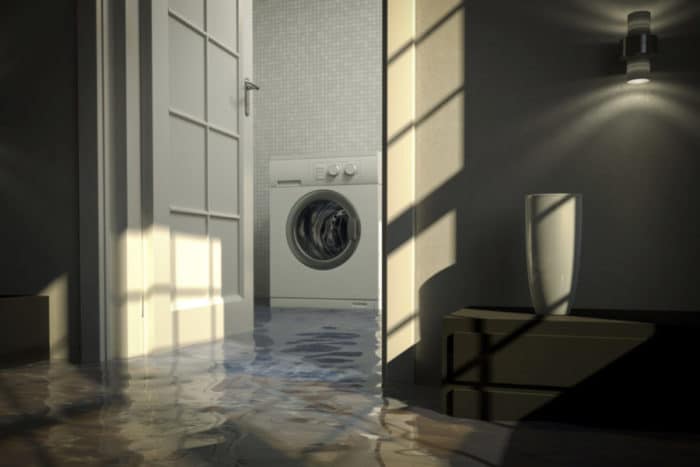Water damage is one of the most common and costly issues for homeowners. Whether it’s a burst pipe, a leaky roof, or a flooded basement, water damage can cause extensive damage to your home and disrupt your daily life. However, with some simple preventive measures, you can protect your home from potential water damage risks and avoid costly repairs
Implementing water damage prevention tips is essential to protect your home from potential water-related risks. By following these tips, you can anticipate and mitigate any potential water damage issues before they strike your home.
Key Takeaways:
- Water damage can cause extensive damage to your home and disrupt your daily life.
- Implementing simple preventive measures can protect your home from water damage risks.
- Regular maintenance and inspections of your home’s plumbing system and gutters are necessary to prevent water damage.
- Basement flooding is a common problem that can lead to extensive water damage, but preventive measures such as sump pump maintenance and basement waterproofing can help prevent it.
- Preventing water damage is essential to protect your home from potential risks and costly repairs.
Inspect and Maintain Your Home’s Plumbing System Regularly
In order to prevent water damage caused by plumbing leaks, it is essential to regularly inspect and maintain your home’s plumbing system. A well-maintained plumbing system is less likely to experience leaks or bursts, which can lead to significant water damage throughout your home.
Here are some tips for inspecting and maintaining your plumbing system:
| Task | Frequency |
|---|---|
| Check for leaks around pipes, faucets, and toilets | Monthly |
| Inspect pipes for signs of corrosion or damage | Annually |
| Replace worn out or damaged pipes | As needed |
| Test water pressure and adjust if necessary | Annually |
| Clean out drains and remove any blockages | As needed |
By following these tips and inspecting your plumbing system regularly, you can catch and address any issues before they lead to significant water damage. It is also crucial to hire a professional plumber to inspect your plumbing system once a year to ensure it is in good working condition.
Additionally, make sure to know where your shut-off valves are located in case of a plumbing emergency. Being able to quickly shut off the water supply can significantly reduce the amount of damage caused by a burst pipe or other plumbing issue.
Overall, taking the time to inspect and maintain your plumbing system can go a long way in preventing water damage in your home and saving you from costly repairs.
Ensure Proper Drainage and Gutters
Proper drainage and gutters are key to preventing water accumulation and subsequent water damage to your home. To ensure that water flows away from your home’s foundation, it is important to have a well-maintained gutter system.
Gutter Maintenance: Clean your gutters at least twice a year to prevent buildup and blockages. You can do this yourself or hire a professional to do it for you.
Proper Drainage: Make sure that your home’s drainage systems are functioning correctly by checking that drains are clear and free-flowing. If you notice slow drainage, consider using a drain snake or chemical drain cleaner to unclog the pipes. If the problem persists, it may be time to call in a professional.
By taking these preventive measures, you can avoid water accumulation and potential damage to your home. Remember, it’s always better to be proactive rather than reactive when it comes to preventing water damage.
Take Precautions to Prevent Basement Flooding
Basement flooding is a common issue that many homeowners face and can lead to extensive water damage. Fortunately, there are several precautions you can take to prevent basement flooding and keep your home protected. Here are some tips:
- Inspect and Maintain Your Sump Pump: Your sump pump is the first line of defense against basement flooding, so it’s essential to keep it in good working order. Regularly inspect your sump pump and ensure it’s connected to a power source and discharge pipe. If it’s not in proper working condition, consider replacing it.
- Waterproof Your Basement: Waterproofing your basement is a surefire way to prevent water damage, especially if you live in an area prone to flooding. There are several basement waterproofing methods, including applying sealants, installing interior drainage systems, and landscaping your yard to improve drainage away from your home.
- Ensure Proper Insulation: Proper insulation can help prevent basement flooding caused by frozen pipes during the winter months. Consider insulating your pipes, walls, and windows to protect against water damage.
By taking these precautions and implementing preventative measures, you can avoid costly repairs and keep your basement dry and protected.
Conclusion
In conclusion, implementing these essential water damage prevention tips will help protect your home from potential risks and costly repairs. By regularly inspecting and maintaining your plumbing system, ensuring proper drainage and gutters, and taking precautions to prevent basement flooding, you can safeguard your asset and enjoy peace of mind. Remember, prevention is always better than cure, and a little investment in these preventive measures can save you from significant water damage related expenses in the long run.
FAQ
What are some common signs of water damage in a home?
Common signs of water damage in a home include water stains on walls or ceilings, musty odors, peeling paint or wallpaper, warped or buckling floors, and visible mold growth.
How can I prevent water damage from plumbing leaks?
To prevent water damage from plumbing leaks, regularly inspect your plumbing system for any signs of leaks, such as dripping faucets or water stains. Ensure proper insulation of exposed pipes and promptly repair any leaks or damages found.
How can I maintain clean gutters to prevent water damage?
Regularly clean your gutters from debris, such as leaves and twigs, to ensure proper water flow. Consider installing gutter guards to prevent clogging. Additionally, ensure downspouts are properly directed away from your home’s foundation to prevent water accumulation.
What can I do to prevent basement flooding?
To prevent basement flooding, ensure proper grading around your home’s foundation to direct water away. Install a sump pump in your basement and regularly maintain it to ensure it functions properly. Consider implementing basement waterproofing techniques, such as sealing cracks and applying waterproof coatings.
Why is regular inspection and maintenance of the plumbing system important?
Regular inspection and maintenance of the plumbing system can help identify and address potential issues before they cause major water damage. It allows for early detection of leaks, corrosion, or other plumbing problems, saving you from costly repairs and damage.









